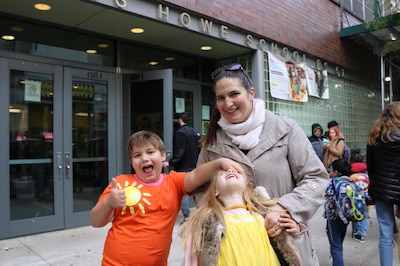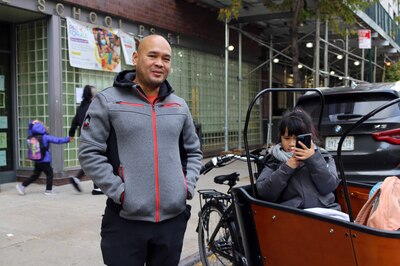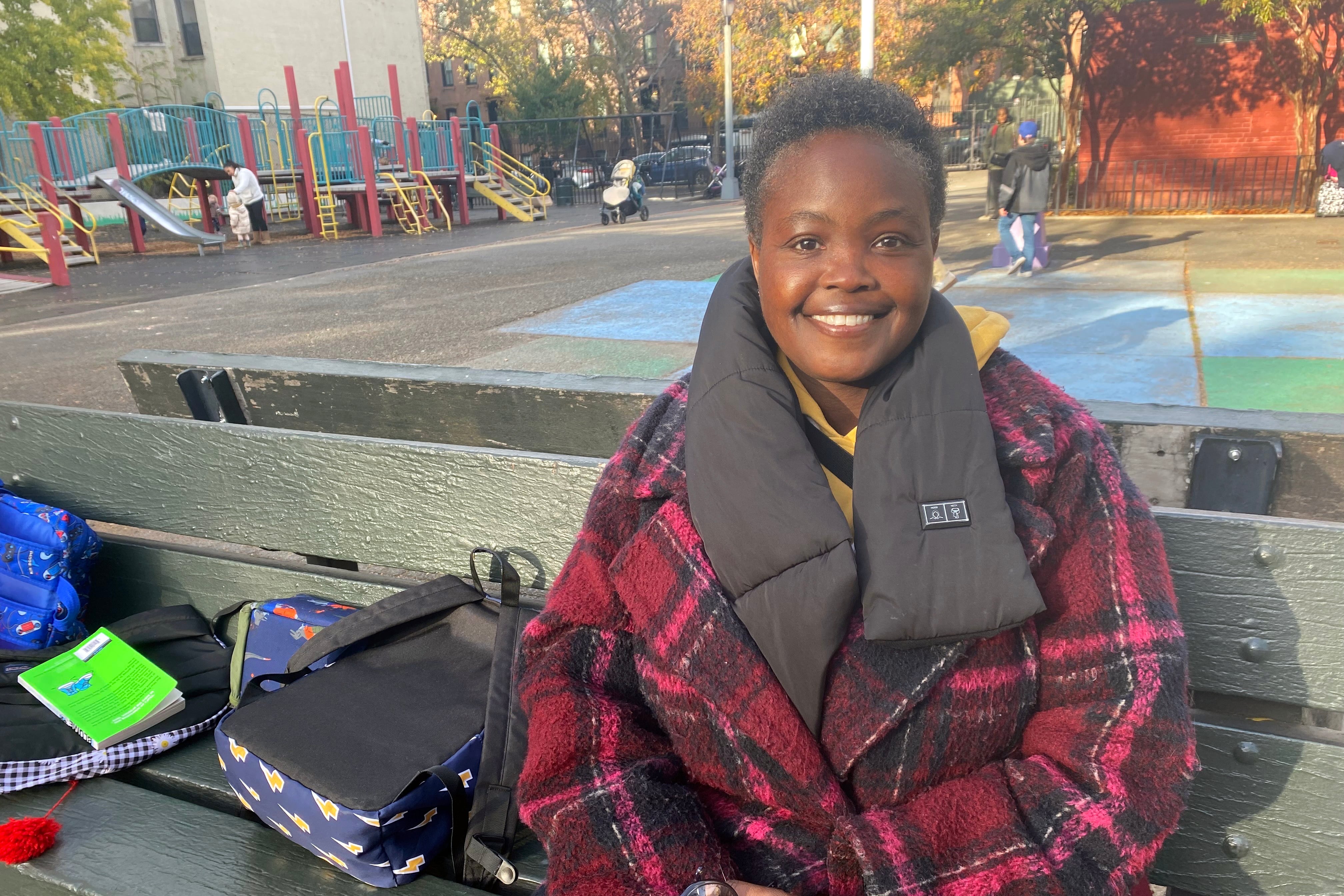Sign up for Chalkbeat New York’s free daily newsletter to keep up with NYC’s public schools.
Remote parent-teacher conferences, a holdover from the height of the pandemic, continue to elicit mixed feelings among families and educators alike.
For some parents, these virtual meetings — which were enshrined in the most recent teachers union contract — have been a boon. They can Zoom with teachers during their work day. They no longer need child care to travel to and from schools for the meetings. For those with multiple kids, it can be easier to juggle meetings at different schools.
But just as remote learning exacerbated New York City’s gaping digital divide, these virtual meetings also leave out families with less tech access and those with language barriers. Faced with an array of teachers with different sign-up methods, joining the meetings can feel insurmountable to some.
Schools Chancellor David Banks has repeatedly said parent engagement is among his top priorities. But participation in parent-teacher conferences was down 40% last year compared with the most recent school year before the pandemic hit, according to city data.
One Manhattan middle school principal expressed deep frustration with the remote conferences. The school leader, who spoke on condition of anonymity, said attendance at the virtual sessions is significantly lower than the in-person conferences before the pandemic.
It’s especially difficult for the school’s growing number of migrant families to participate, as they often don’t have easy access to technology or reliable Wi-Fi at their shelters.
The school’s 10- to 15-minute student-led conferences, where kids show off their work and share plans for improvement, have been tricky to transition virtually.
“There’s something important about physically coming to the school, seeing where your child sits, seeing their work displayed on the bulletin board, and actually having a heart- to-heart conversation,” the principal said. “What we need more than ever is people back in the building and people being a part of the community.”
Education Department officials defended the virtual meetings, saying they “expanded opportunities” for families to meet with teachers.
“We support remote parent/teacher conferences to accommodate guardians who have disabilities and are more comfortable in a controlled environment, guardians who cannot take time away from work, guardians who are caregivers to additional children/family members,” said Education Department spokesperson Chyann Tull.
She added, “Parent/teacher conferences can also occur in person, upon request, at a mutually agreed upon time.”
Many parents, however, were not aware of that provision in the teachers union contract.

Amy Clow, the parent association president at P.S. 51 in Hell’s Kitchen, echoed that in-person conferences helped build a sense of community.
“Maybe you’d see another family waiting,” she said, “we could actually talk to other parents and get to know them.”
Although she said the school’s teachers have tried to make the virtual conferences work, there are limits to the approach. A recent conference that was scheduled for 10 minutes wound up feeling more like five, given that her kids were at home interrupting her.
“Nothing’s as good as in person,” she said. “We learned that during COVID.”
Brooklyn mom Tamra Dixon also believes she got more out of the in-person meetings.
“By the time you exchange greetings — “Yeah, he’s great” — then they log off before you even get a chance to really talk,” said Dixon, whose fifth grader attends P.S. 282 in Park Slope. “It’s a little more difficult to do that when someone is sitting in front of you, so you have a better chance of getting all your questions answered in person.”
At her recent parent conference, all of her son’s teachers were together on the Zoom, each giving their assessments, which was “not bad,” Dixon said since that meant she didn’t have to log in to various Zooms. Still, one of the teachers kept her camera off and didn’t chime in, leaving the mom feeling confused.

On the other hand, Manhattan dad Mike Robles said he appreciated the virtual conferences in part because they were set up with each teacher individually instead of conferencing with multiple teachers at once.
The feedback “feels a little bit more specific,” said Robles, whose daughter attends P94M, a school in District 75 that exclusively serves students with disabilities. “They’re not like five in a room [at] the same time.”
Ean Pimentel, a dad at P.S. 51, said the online setup was helpful since two of his children attend schools in different neighborhoods. Plus, he didn’t have to scramble for child care.
“You got to pay somebody to come watch the other kids, so [remote] is easier,” he said.
For Brendan Gillett, a teacher at International High School at Prospect Heights, which serves recently arrived immigrants, getting families to log on isn’t the biggest hurdle. The school makes a big effort to get families to come to the conferences. But the quality of the meetings are different than they were when they were in person, Gillett said.
“They feel shallower than in the past,” Gillett said. “It’s harder to go over documents. Parents will Zoom from their car or work or somewhere so they seem distracted, and generally, I just don’t think it’s as meaningful.”
Most elementary schools held parent-teacher conferences last week. Most middle schools hosted them on Thursday, and high schools have them on Nov. 16.
Amy Zimmer is the bureau chief for Chalkbeat New York. Contact Amy at azimmer@chalkbeat.org.
Alex Zimmerman is a reporter for Chalkbeat New York, covering NYC public schools. Contact Alex at azimmerman@chalkbeat.org.






